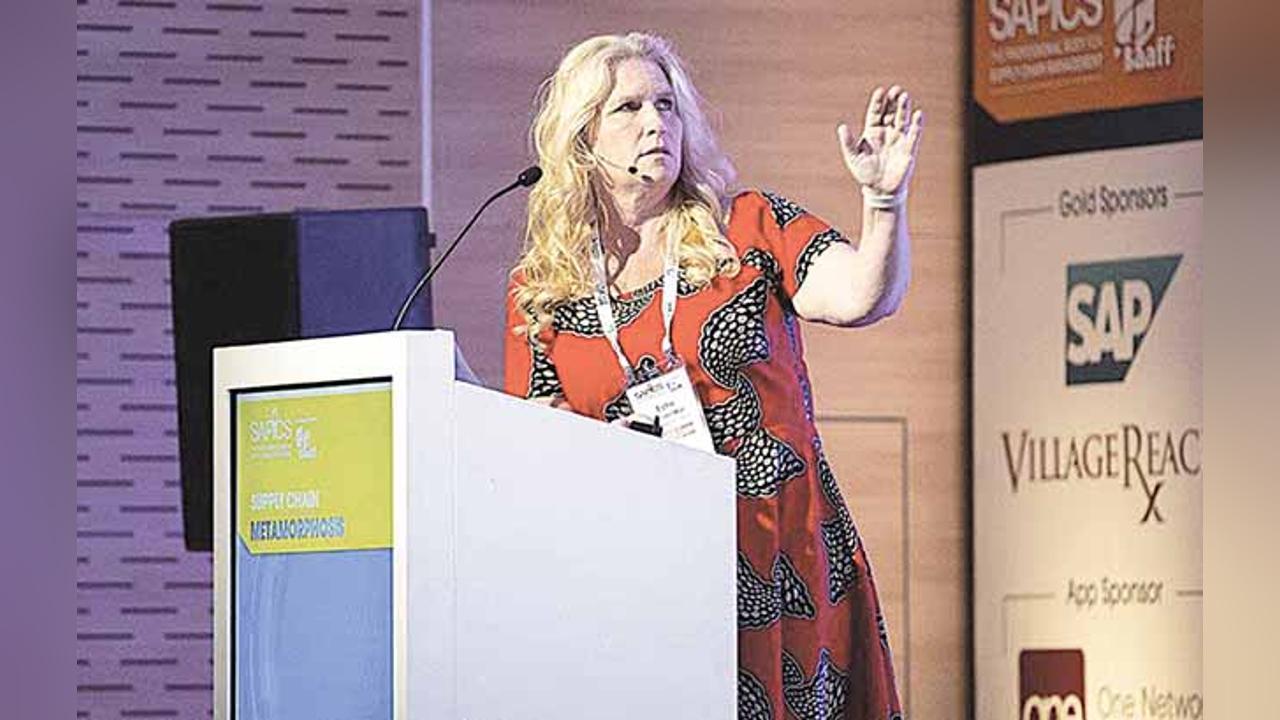Africa-Press – Eswatini. The Luke Commission has revealed that it spent approximately E1bn on patients during the COVID-19 pandemic, money they would appreciate being reimbursed by government.
The organisation further revealed that the costs were incurred during the 2020-2022 period, highlighting this as one of the reasons it was faced with acute financial challenges.
This was detailed in a report clarifying the facility’s funding and financial compliance issued in May.
During the Parliament select committee inspection in-loco at the TLC facility, Executive Director Echo VanderWal was asked if they would be interested in filing claims for the COVID fund, if possible, and she responded to the affirmative.
The director also informed the committee that they were open to exploring any legitimate opportunities to claim funds for expenses incurred during this challenging period.
“If there are channels or processes through which eligible claims can be made, guidance in this regard can be appreciated. Furthermore, if there are any other payments or transactions involving TLC that require clarification, TLC encourages full transparency and is ready to provide necessary information,” the director stated.
funding
She further stated that they raised their challenges with Cabinet in April 2023 regarding lack of sufficient funds to support the increasing volumes of patients and on August 2023 presented the case to the highest authorities.
Following that meeting, Vanderwal said they were advised to make a formal request for emergency funding.
“TLC did make a formal request to Cabinet on August 16, 2023 and the response from government and in consultation with the acting prime minister, was that TLC’s financial challenges were caused by the strains of the major load it incurred during the COVID-19 era,” the director stated.
She explained that TLC was advised to requisition for support from NDMA and this was submitted as advised.
However, she said TLC was informed that there were no more resources available at NDMA.
Explaining how the costs were incurred, VanderWal said TLC provided free medical care and treated about 90 per cent of the nation’s COVID-19 intensive care unit patients.
She said they received financial support from various donors both locally and internally, in cash and in kind.
While TLC did not receive direct COVID funding from the National Disaster Management Agency (NDMA), NDMA did make E6.5 million in payments on behalf of TLC directly to Elcor, Afrox, Foxlution, and Eswatini Electricity Company (EEC) for medical oxygen commodities and some of the power costs associated with operating the oxygen plant.
TLC received nearly E70 million in direct cash funding from the United States government (USAID and PEPFAR) and UNICEF for patient care and vaccination efforts.
TLC can confirm generous funding totalling nearly E46 million from Kirsh Foundation, PEPFAR, USAID, UNICEF, FNB, and other private donors, which saved thousands of lives.
The institution also received gift-in-kind donations for COVID primarily from international donors, which were crucial in saving many lives
expenses
According to Vanderwal, while grateful, gift-in-kind donations do not cover essential operational cash expenses such as salaries, utilities, insurance, audit fees, maintenance, lab commodities, pharmaceuticals, medical/surgical commodities, fuel, interest on the oxygen plant, and the overdraft, among others.
She highlighted that while these contributions proved lifesaving for thousands of Emaswati for which they were very grateful, they only represent a fraction of the actual operating costs incurred by TLC in providing care to Emaswati between 2020 and 2022 to help those affected by COVID.
Clarifying the funding specifically for the oxygen plant, she said the cost of building and operating the plant over the past three years exceeded E90 million.
To operationalise the plant, TLC also took loans from FNB, totalling E20 million, with interest payments covered by the overdraft for three years, resulting in double interest payments each month.
The remaining E24 million needed to build and operate the plant and pay the loan payments continues to be drawn from their limited cash reserves.
Energy costs to operate the plant were largely unfunded, resulting in a significant debt with EEC.
She further stated that payment agreement was made with Eswatini Electricity Company to avoid electricity disruption at the Miracle Campus, still being paid by the overdraft at E100 000 a month.
“In addition to over 450 million litres of oxygen given freely to those admitted at the Miracle Campus Hospital, more than 10 000 oxygen cylinders (over 75 million litres of oxygen) have been voluntarily distributed to public and NGO health institutions at no cost to the Eswatini government.”
opportunities
She further stated that despite this, oxygen cylinders in the Eswatini public healthcare system were currently sourced from international industrial gas suppliers rather than utilising locally-produced oxygen from TLC.
TLC has since indicated that it remains open to exploring any legitimate opportunities to claim funds for expenses incurred during this challenging period.
Vanderwal, however, did not reveal the E1 billion patient care services during the COVID-19 pandemic in the narration of responses submitted to the select committee mandated to investigate the disharmony between the Ministry of Health and TLC.
According to the select committee report tabled on Wednesday, which is subject to debate and adoption by the House, she detailed how assisting Emaswati during the COVID era crippled the organisation financially.
She disclosed that they did not receive any funding from the Ministry of Health, whether from government or from the ministry’s controlled budgets with international partners.
According to the director, they unreservedly served the nation without any funding from the ministry or even recognition.
accountability
“The Ministry of Health has never extended any offers of support.
The ministry knows of TLC’s international reputation for accountable service delivery, thus partnering with TLC will empower healthcare for Emaswati,” the director stated.
She said they have always upheld the highest internationally recognised standards of accountability and transparency.
Explaining about support received, she said the limitation of support they received from government was the access to commodities and medication from the central medical stores (CMS).
“On average, TLC receives between 15 to 20 per cent of what it requests from CMS. TLC has always complied with all requests for assessments or site visits as it relates to this non-cash support via CMS,” VanderWal stated.
She further stated that they voluntarily provided critical services such as caring for 90 per cent of the nation’s COVID intensive care unit patients and direct service delivery for vaccinations, as well as developing the vaccination certificate system issuing vaccination certificates for the nation
“We acknowledge the minister of health and principal secretary’s efforts to open the market to diversified oxygen production and supply.
Ultimately, having abundant, resilient, lower cost supplies of medical oxygen is good for the health of the nation now and in preparation for future pandemics,” she stated. The institutions financial challenges have resulted in some services being scaled down and some of the workers being retrenched.
For More News And Analysis About Eswatini Follow Africa-Press







